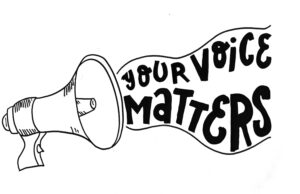Editorial: Minimum Wage
In his 2014 State of the Union Address, President Obama proposed a $10.10 minimum wage – $2.85 higher than the current federal mandate of $7.25 an hour. On the tails of our latest recession, the minimum wage has become a hotly debated issue.
The debate hinges on two economic models: one that foresees a wage raise causing inflation, and increasing unemployment, and another that predicts a decrease in employee turnover, an increase in consumer purchasing power, greater business efficiency, and a collective net increase in income for the poor and middle classes.
While basic economics seem to support the first theory, the second theory takes into account nuances lost in the first. In other words, it’s time to raise the minimum wage.
But before discussing the merits and flaws of each theory, it’s important to understand the makeup of minimum wage earners. According to the Heritage Foundation, a conservative think tank, only 22% of those who earn minimum wage live at or below the poverty line, which is currently defined as $33,500 per year for a family of four. (This metric of poverty is also in question, but that is another debate entirely.) The Economic Policy Institute finds that if the minimum wage were raised to $10.10 an hour, almost 70% of affected workers would live in families earning less than $60,000 a year, which is almost $10,000 above the national median of $53,891. In essence, research from both sides shows that raising the minimum wage will allow the middle class to spend more money, stimulating the economy as a whole. As President Obama once said, “when the middle class thrives, America thrives.”
And a minimum wage increase would help more than just the middle class. Even conservative researchers Joseph J. Sabia and Richard V. Burkhauser conceded in a study in the Southern Economic Journal that a rise in the minimum wage would collectively increase the income of the poor and working class.
One of the largest arguments against raising the minimum wage is that it is meant for entry-level jobs for young people and teenagers, not adults trying to support a family. However, it’s important to remember that teenagers only make up 30% of minimum wage workers, according to the Bureau of Labor Statistics. This means that over two thirds of minimum wage workers are lower middle class or impoverished adults in positions with very limited upward mobility. And it’s not that older minimum wage workers are entirely uneducated either – in fact, one in eight adults working minimum wage have a bachelor’s degree or higher, according to the Heritage Foundation. So while some say an increase will only serve to fill the pockets of teenagers looking to earn some spending money, that’s not how it would play out in the economy.
Critics also argue that it would cause inflation, and therefore increase prices. However, most studies done on potential price implications have found that any price increase will be negligible or nonexistent. A 2008 study by Sara Lemos, a professor at the University of Leicester, found that a 10% increase in the minimum wage would raise overall prices by at most 0.4%. Others argue that raising the minimum wage would increase unemployment. However, even traditionalist economists concede that raising the minimum wage to $10.10 wouldn’t raise the overall unemployment rate. Rather, any decreases in rates of unemployment would occur among teenagers, with estimates ranging from a 1-3% drop. As a result, raising the minimum wage would put more money into the pockets of low-income workers (and the economy!) than it would take away due to unemployment.
Research regarding the minimum wage is varied and often contradictory. However, when the arguments are compared, the conclusion is clear. Raising the minimum wage would allow the middle class to spend more, stimulating the economy as a whole. It would decrease employee turnover, meaning that people would stay at their jobs longer, leading to increased efficiency of businesses and a higher rate of employee satisfaction. And most importantly, it would offer more financial stability to thousands of families, and uphold the American ideal of hard work reaping its rewards.



